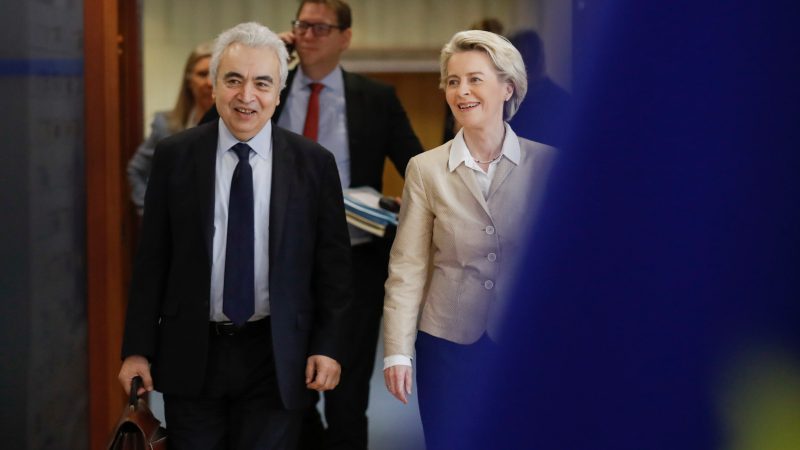Fatih Birol, the chief of the International Energy Agency (IEA), has asked the European Union to back a clean cooking initiative for Africa at the upcoming COP28 climate summit in Dubai, telling Euractiv in an exclusive interview that this is the number one issue for the continent.
According to the IEA, four out of five African families currently rely on primitive charcoal or firewood cooking stoves to prepare their meals, leaving 70% of the population without clean cooking fuels.
“Today in Africa, when it comes to energy and climate, the number one issue is clean cooking,” said Fatih Birol, the IEA’s executive director, in an exclusive interview with Euractiv.
According to the IEA, the harmful smoke released by cooking stoves contributes to 3.7 million premature deaths annually, primarily affecting women and children.
“They are dying,” Birol said. “It’s a gender issue and a health issue”, he added, but also a big energy and climate problem.
Yet, he reckons the issue could be solved in one fell swoop by helping families on the continent switch to clean cooking solutions.
“Fixing this problem once and forever would cost €4 billion,” Birol said. “And today, total European ODA to Africa is €25 billion,” he added, suggesting the figure was realistic for overseas development aid budgets.
“This is the proposal I will share in the next few weeks with the officials of the European Commission in Brussels and other European leaders,” Birol told this website, saying the suggestion came up during discussions with several African leaders, including those of Kenya, Senegal and the African Union.
According to the IEA, reaching universal access to clean cooking could prevent 1.5 gigatonnes of CO2 equivalent from being emitted annually, equal to the CO2 emissions of all planes and ships. Africa would represent almost two-thirds of those emission reductions – around 900 million tonnes of CO2eq.
According to the IEA, four out of five African families currently rely on primitive charcoal or firewood cooking stoves to prepare their meals, leaving 70% of the population without clean cooking fuels.
Besides, primitive cooking methods relying on wood or charcoal contribute to deforestation, resulting in the loss of forests the size of Ireland each year, the IEA says.
“It causes deforestation and undermines Africa’s forest sinks, their ability to absorb CO2,” Birol explained, saying this contributes to worsening the climate crisis.
“If the EU helps Africa fix this problem, it will build trust between Europe and Africa because Africa will never forget it. And Europe’s image in Africa will change,” Birol told Euractiv.
The IEA’s proposal to the EU was welcomed by Sani Ayouba from Young Volunteers for the Environment (Jeunes Volontaires pour l’Environnement), a grassroots organisation working with the global charity Oxfam in Niger.
“The development or the support of initiatives for clean cooking in Africa will not only contribute to reducing the inequalities suffered by women but also improve their health, strengthen their autonomy as well as reduce their footprint on wood energy resources,” he told Euractiv in emailed comments.
According to Ayouba, promoting clean cooking in Africa can significantly impact the continent because the issue affects the daily lives of women, who represent most of the population there.
Women and children in those regions spend up to 20 hours a week gathering wood to prepare meals for their families, according to the Clean Cooking Alliance, a non-profit based in the US.
“It is also an opportunity to strengthen resilience to the climate crisis in Africa,” Ayouba added, saying the energy sector remains critical to addressing climate change worldwide.
The IEA estimates that nearly one in three people gaining access to clean cooking in Africa by 2030 will do so via liquified petroleum gases (LPG), and one in eight thanks to electricity.
Source: Euractiv






